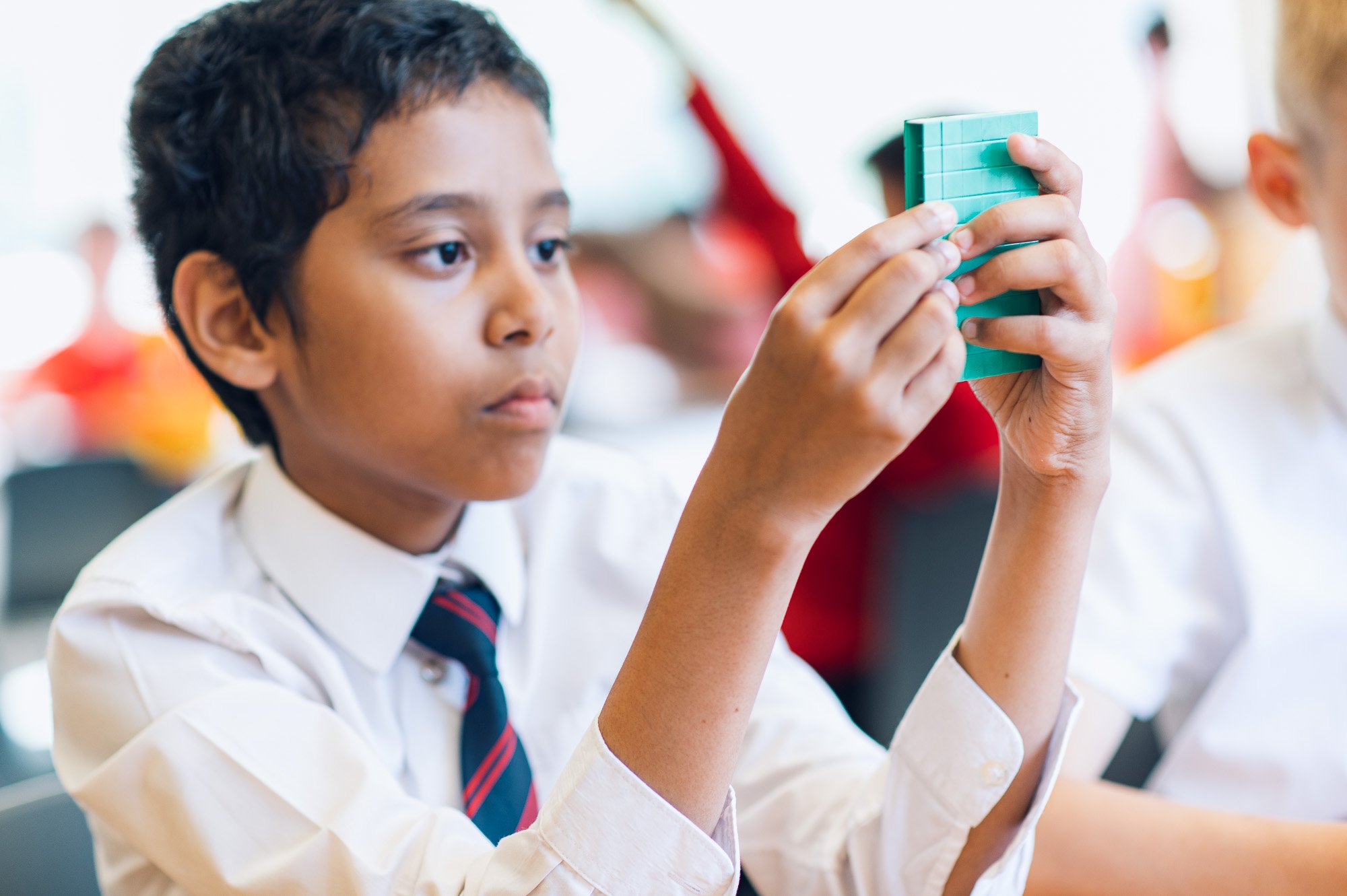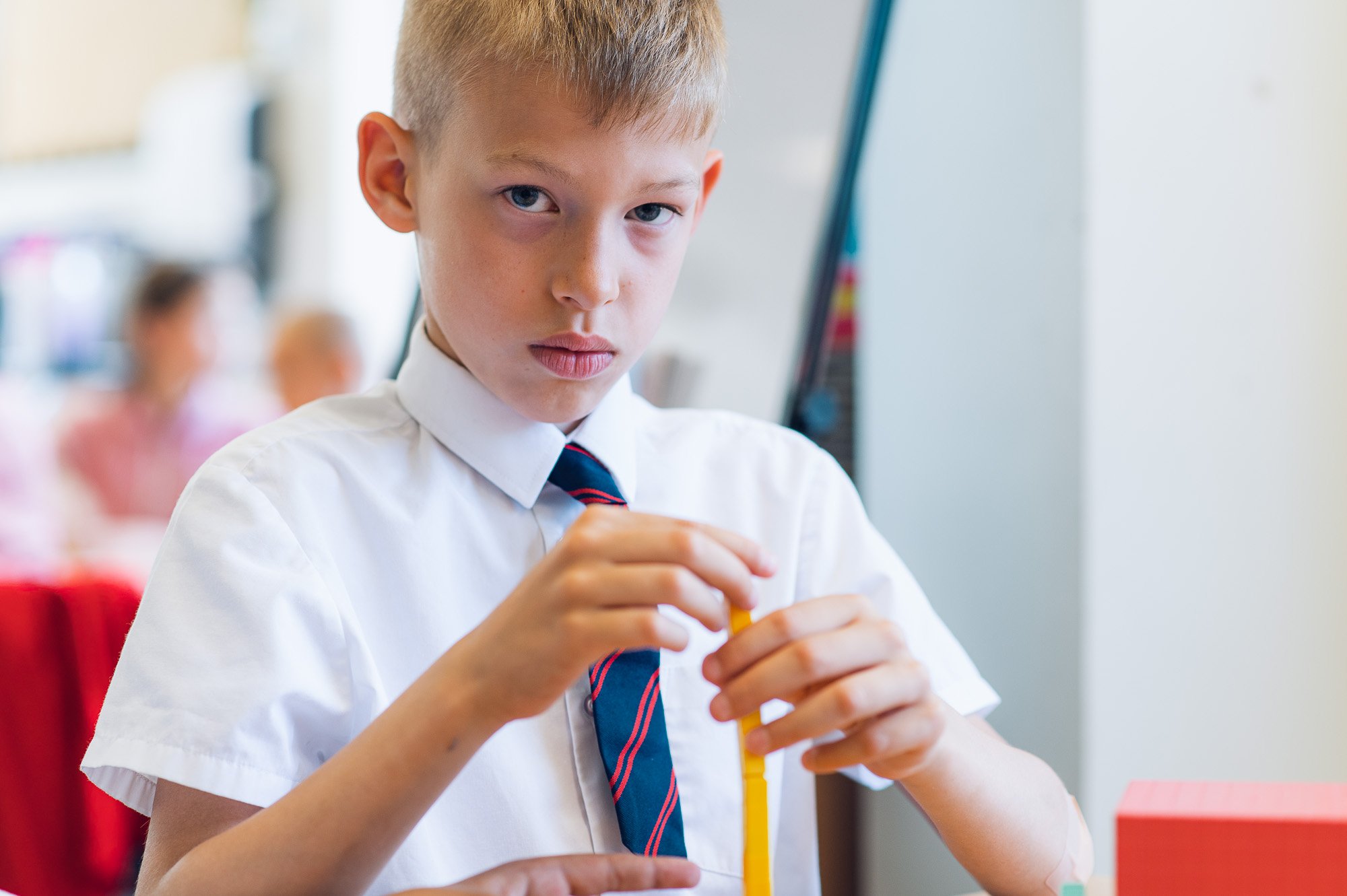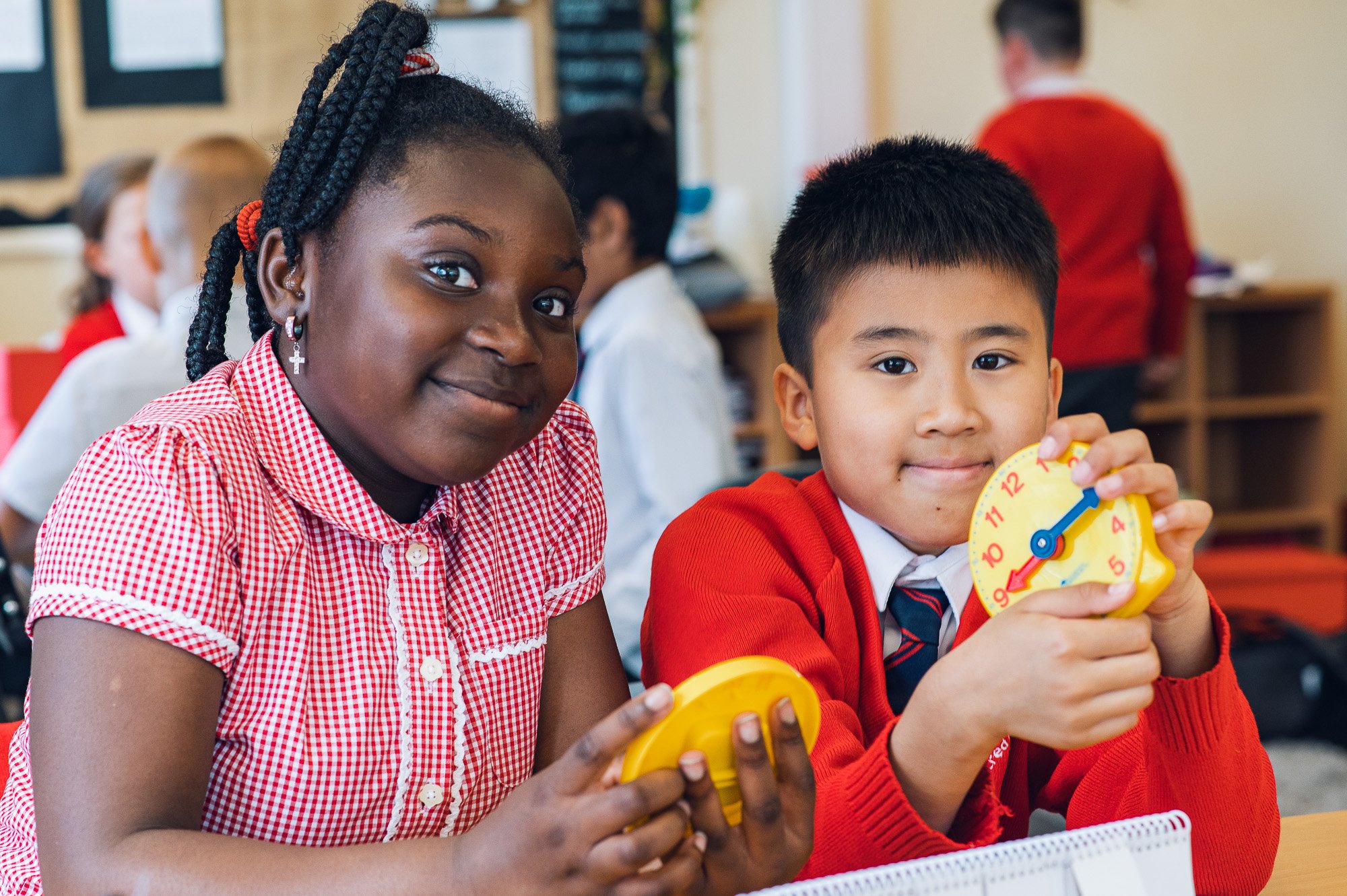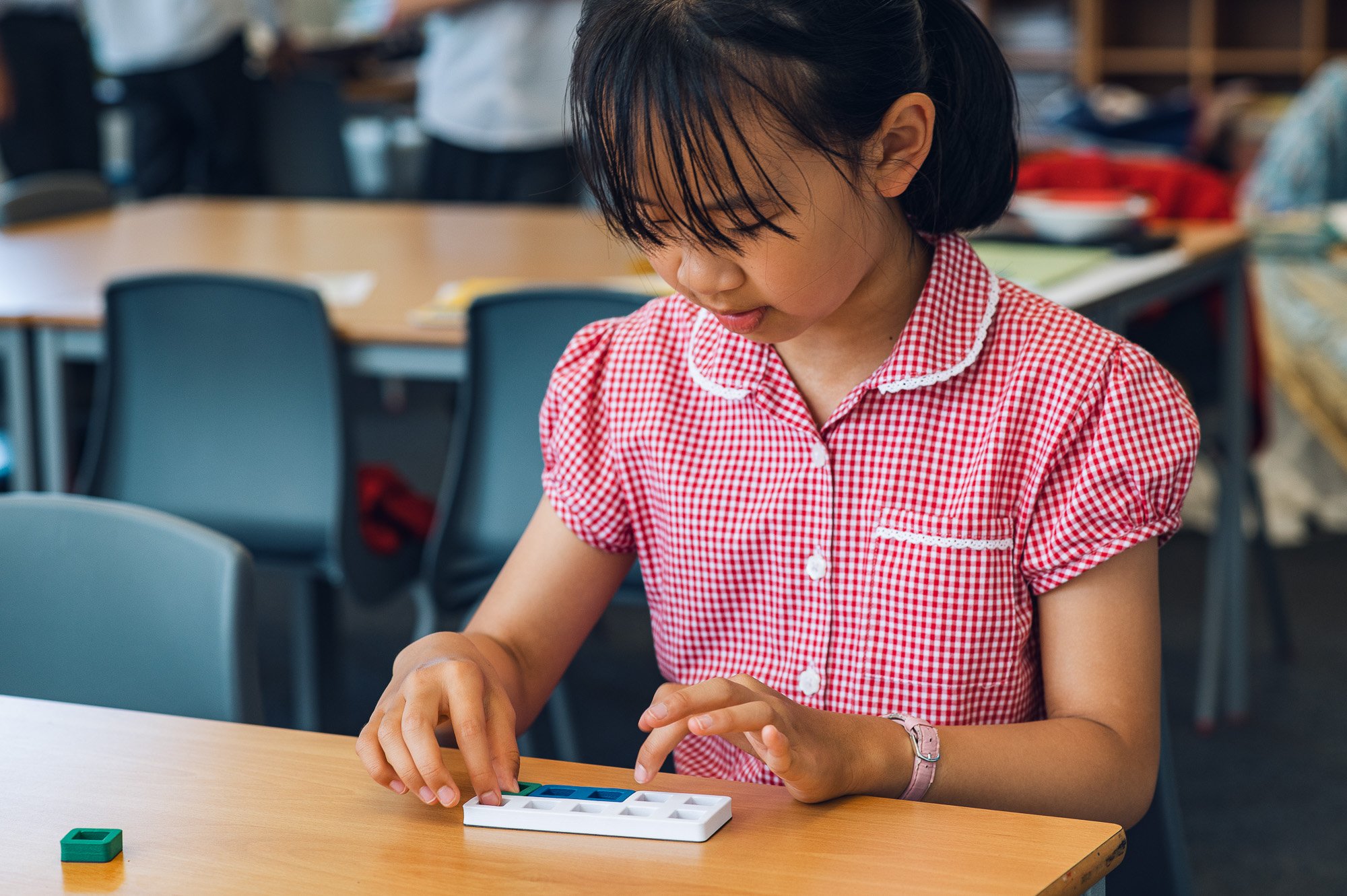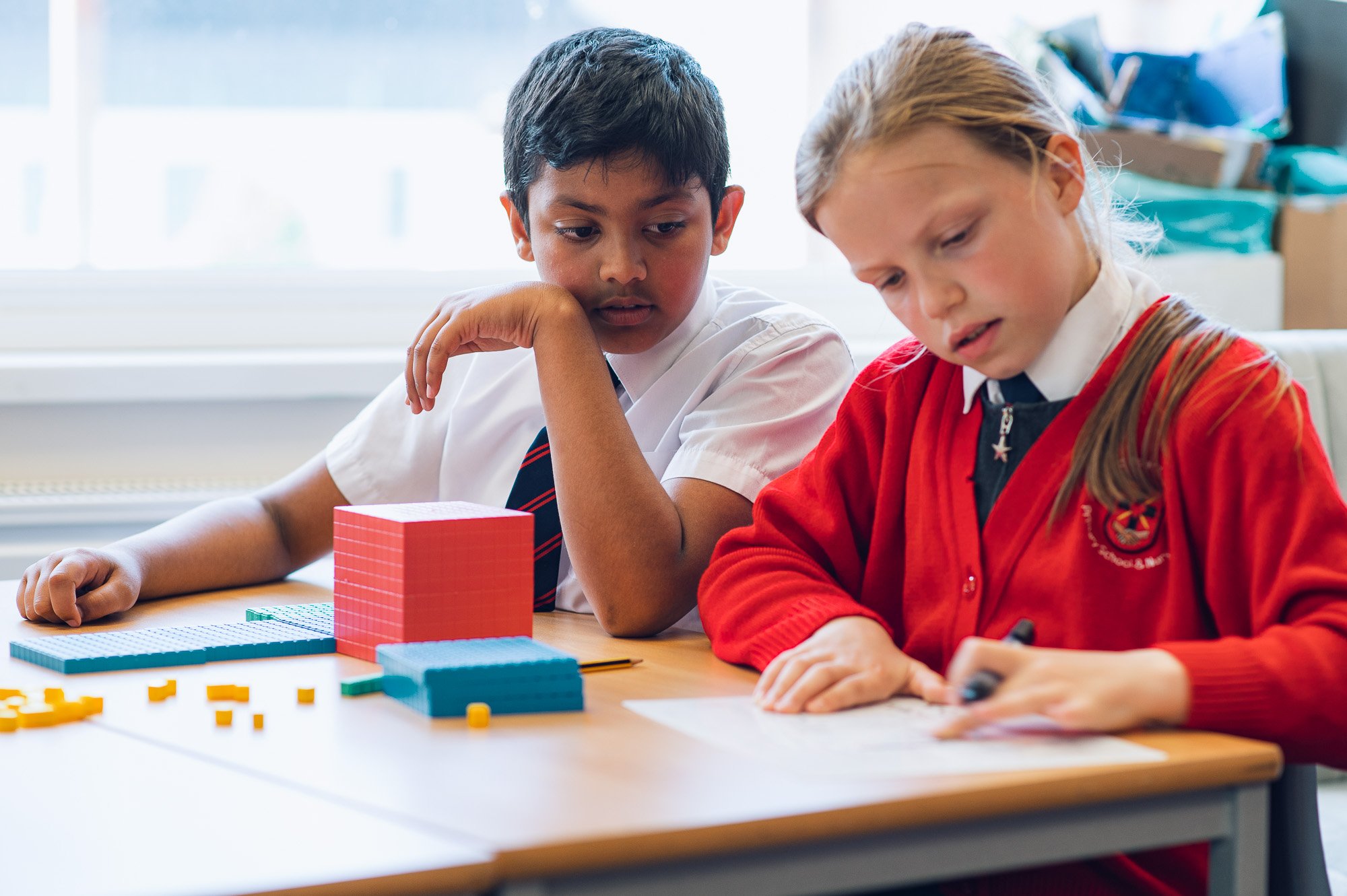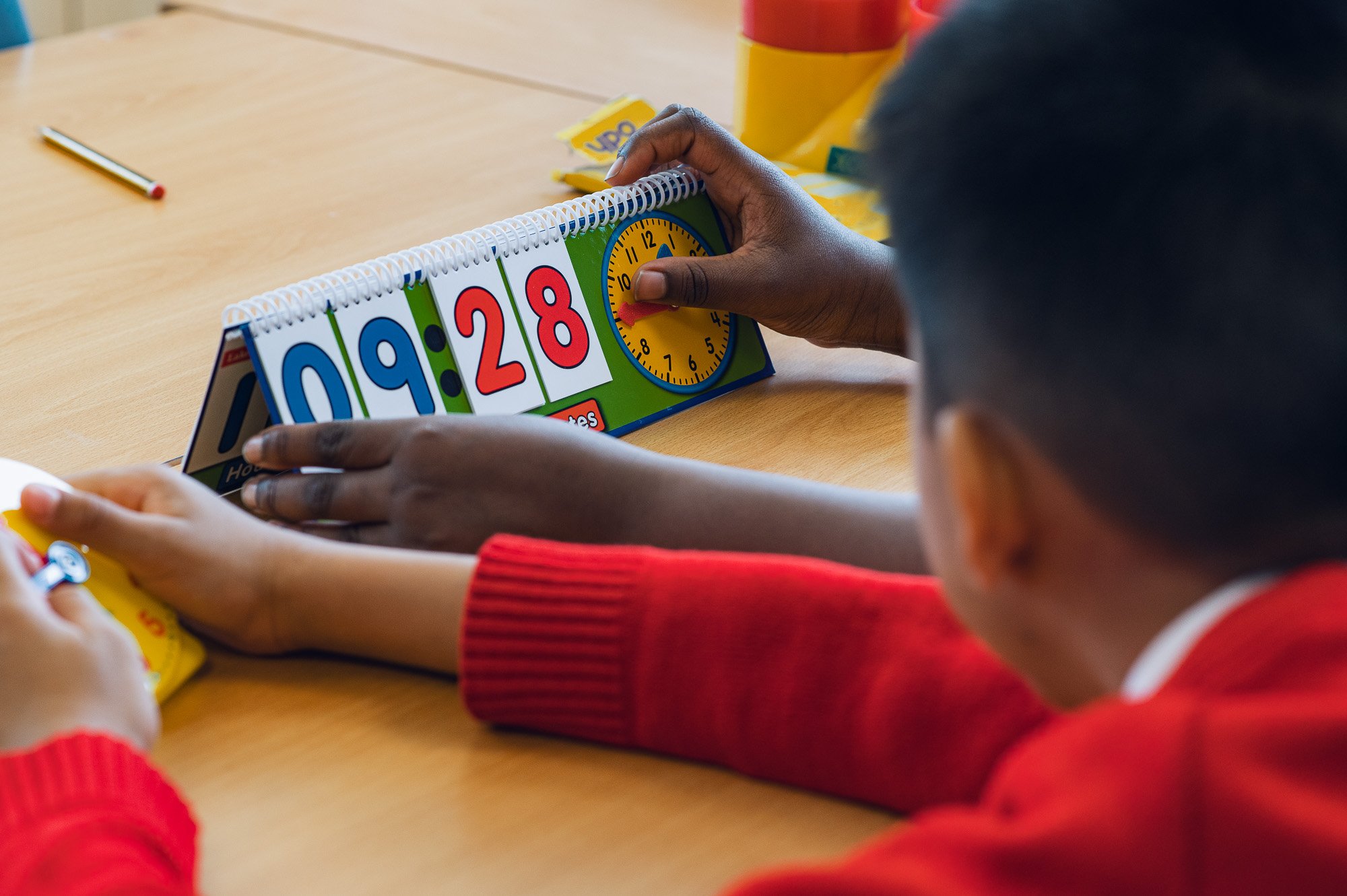
Maths
Maths
at Sacred Heart Primary School
Maths is a central part of everyday life and is a skill that we use every day. Therefore, it is the school’s vision to produce fluent mathematicians who have a love and enjoyment for maths; to empower them in their later lives. Unlocking mathematical fluency is an essential life skill and is key in being able to reason and problem solve mathematically. We believe in the importance of making connections between concrete materials, models and images, mathematical language, symbolic representation and prior knowledge. Through our teaching sequence, we ensure that children have the opportunity to practice key skills whilst developing their understanding and application to more complex questioning.
Implementation
Here at Sacred Heart, we have developed our own small step curriculum using the National Curriculum and NCETM Spine Materials. This ensures that all children are catered for within maths lessons; providing necessary support and challenge for each individual to make progress. Maths is taught through creative and engaging lessons, using a wide array of maths manipulatives and visuals to aid and support our children in their learning.
We aim to encourage the deepest of learning for our children so that their knowledge can be transferred and applied in many contexts including other subjects e.g. science and art and their everyday lives.
Maths is widely promoted across the school and our classrooms have working walls and resource areas that the children can utilise to support their learning and provide extra challenge.
Our aim is to ensure that the three core areas of the national curriculum are covered in all our lessons: fluency, reasoning and problem solving. We offer the children the opportunity to have varied and frequent practice of their maths skills at the start of each session. Reasoning is a key area in all our lessons as our children need to be able to ‘Show it’, ‘Draw it’, ‘Prove it’ and ‘Explain it’ to be successful in this subject.
Mathematical vocabulary is an essential part of each lesson and the children need to understand this within the area they are studying and be able to make rich connections across other areas within this subject. Each lesson provides children with the opportunity to reason and problem solving using the vocabulary they have learnt during their lessons.
We hope to build problem-solvers of the future and build resilience in our children; we want to provide the children with essential skills they can use in all aspects of their learning. Through regular problem-solving and reasoning, the children are able to practice, apply and embed the mathematics skills they have developed throughout the year.
Structure of a Maths Lesson
Recap on prior vocabulary
Recap on prior learning
Sharing of lesson outcome
Introduction to new vocabulary and oracy sentence
‘Hands-On’ modelling by the teacher following an ‘I do’, ‘You do’ approach: the children will actively engage in using manipulatives and mathematical strategies during this time
Independent work and application: through assessment for learning, children will be moved on to provide depth of challenge as and when necessary
Mini Plenary/plenary as and when required
Overview and Progression Maps

Videos to Help Your Child with Place Value
Videos to Help Your Child with Telling the Time
Videos to Help Your Child with Rounding
Maths in Action





